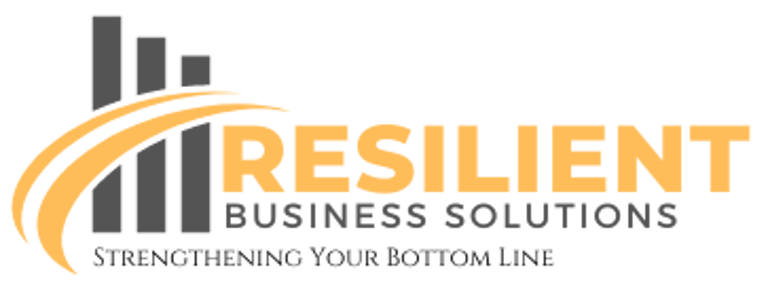How to Set Up Your Small Business for Financial Success
Learn how to set up your small business for financial success with actionable tips on creating an organized financial system from day one, ensuring smooth operations and sustainable growth.
4 min read


Creating a Robust Business Plan
A solid business plan is the cornerstone of any successful small enterprise, serving as both a roadmap and a critical tool for securing funding. The cornerstone of this document is the executive summary, an encapsulation of your business concepts, goals, and the strategic approach that will catapult your venture to success. Though concise, this section must encapsulate the essence of your business, enticing potential investors to explore further.
An in-depth market analysis follows, providing insight into your industry, target market, and competitive landscape. This analysis is crucial for identifying opportunities and threats within the marketplace, allowing your business to position itself effectively. It is essential to delve deeply into demographic data, market needs, and trends to substantiate your business prospects.
The organizational structure component delineates your company's hierarchy and identifies key players within the business. This includes outlining roles and responsibilities, which is pivotal for operational efficiency and clarity. A clear organizational blueprint ensures accountability and promotes a smoothly running enterprise.
Financial projections are arguably the heart of your business plan. This section should include detailed revenue projections, profit margins, and a comprehensive breakdown of startup costs. Initial costs can cover everything from lease agreements and equipment purchases to marketing and staffing. Equally important is the identification of potential funding sources, whether through loans, investments, or grants, to ensure that your financial needs can be met sustainably.
Moreover, setting clear, realistic goals and outlining strategies for achieving them is indispensable. Specific, measurable, achievable, relevant, and time-bound (SMART) goals help in steering the business toward desired outcomes while enabling regular performance assessment.
Finally, incorporating a contingency plan is indispensable for navigating potential financial shortfalls or unforeseen challenges. This plan should outline how your business intends to manage unexpected costs, such as sudden economic downturns or operational crises, ensuring long-term resilience and financial stability.
Implementing Effective Financial Management Tools
Effective financial management is paramount to the success and sustainability of any small business. Utilizing the right financial management tools from the onset can make a significant difference in maintaining financial health and ensuring seamless business operations. A range of accounting software options are available that cater specifically to small businesses, such as QuickBooks, Xero, and FreshBooks. These platforms provide comprehensive solutions for managing finances, including invoicing, expense tracking, payroll processing, and financial reporting.
QuickBooks, for example, is a popular choice due to its user-friendly interface and powerful capabilities that can scale as your business grows. Xero offers robust features with a focus on an easy, collaborative approach to bookkeeping, ideal for business owners seeking to simplify their accounting tasks. FreshBooks, on the other hand, is particularly beneficial for service-based businesses, providing streamlined invoicing and expense management tools.
Regularly tracking income and expenses is crucial. By maintaining accurate records of financial transactions, business owners can stay informed about their financial position and make data-driven decisions. Accounting software can automate this process, reducing human error and freeing up time to focus on other business activities. In addition, setting up a dedicated business bank account and credit card is advisable, as it helps in clearly separating personal and business finances, which is essential for accurate accounting and tax reporting.
Maintaining up-to-date financial records is not only beneficial for internal financial planning but also essential for tax purposes. Accurate record-keeping ensures that at the end of the fiscal year, businesses can prepare their tax returns with ease, thus avoiding potential penalties and ensuring compliance with tax laws.
Another key aspect of financial management is cash flow management. Ensuring that cash inflows and outflows are monitored effectively can prevent liquidity issues and support sustainable business growth. Tips for managing cash flow include projecting future cash flow needs, optimizing inventory management to avoid overstocking, and negotiating favorable payment terms with suppliers.
Incorporating these financial management tools and practices will significantly contribute to the financial stability and long-term success of a small business, enabling owners to focus on growth and innovation.
Establishing Good Financial Habits
Sound financial habits are fundamental for long-term business success. One of the key practices to adopt is diligent budgeting. Create a detailed budget that outlines all anticipated expenses and sources of revenue. This framework will help in monitoring cash flow, ensuring that your business remains solvent and on track to achieve its financial goals. Additionally, it's vital to regularly monitor financial performance by comparing actual outcomes against the projected budget. This allows for timely adjustments and fosters a robust financial discipline.
Equally important is regularly reviewing financial statements, such as balance sheets, income statements, and cash flow statements. These documents offer an in-depth understanding of your business's financial health and highlight areas that require attention. Paying yourself a reasonable salary is another critical element. It ensures your personal financial stability and prevents the temptation to dip into business funds for personal expenses. The balance between personal remuneration and reinvesting profits is crucial for sustained business growth.
Staying informed about financial regulations and tax obligations is indispensable for small business owners. Non-compliance can result in hefty fines and legal troubles that can jeopardize your business. Understand the local, state, and federal regulations that pertain to your industry, and ensure timely submission of tax forms and payments. Engaging with professional financial advisors or accountants can significantly ease this load. They offer expertise in navigating complex financial decisions and help ensure that your business remains compliant with financial laws.
Finally, the value of continuous education cannot be overstated. Stay abreast of industry-specific financial trends and challenges through webinars, workshops, and relevant literature. This ongoing learning process enables you to adapt to market changes and maintain a competitive edge. By establishing and maintaining these good financial habits, you lay a strong foundation for your small business's financial success.
When You Are Ready
Ready to simplify your business finances? At Resilient Business Solutions, we’re here to take the stress out of managing your books so you can focus on what you do best—growing your business. Whether you need help with bookkeeping, invoicing, or managing payables and receivables, we’ve got you covered. Contact us today to learn how we can support your business with reliable, expert financial services. Let’s build a resilient future together!
Strengthening Your Bottom Line
Customized financial support to empower your business success.
Get Our Free 50+ Page Small Business Success Guide Now
© 2024. All rights reserved.
